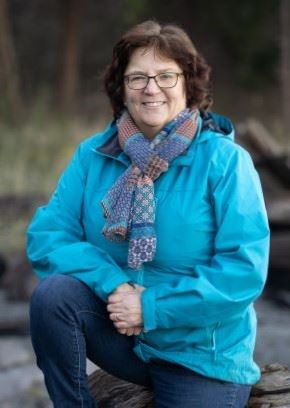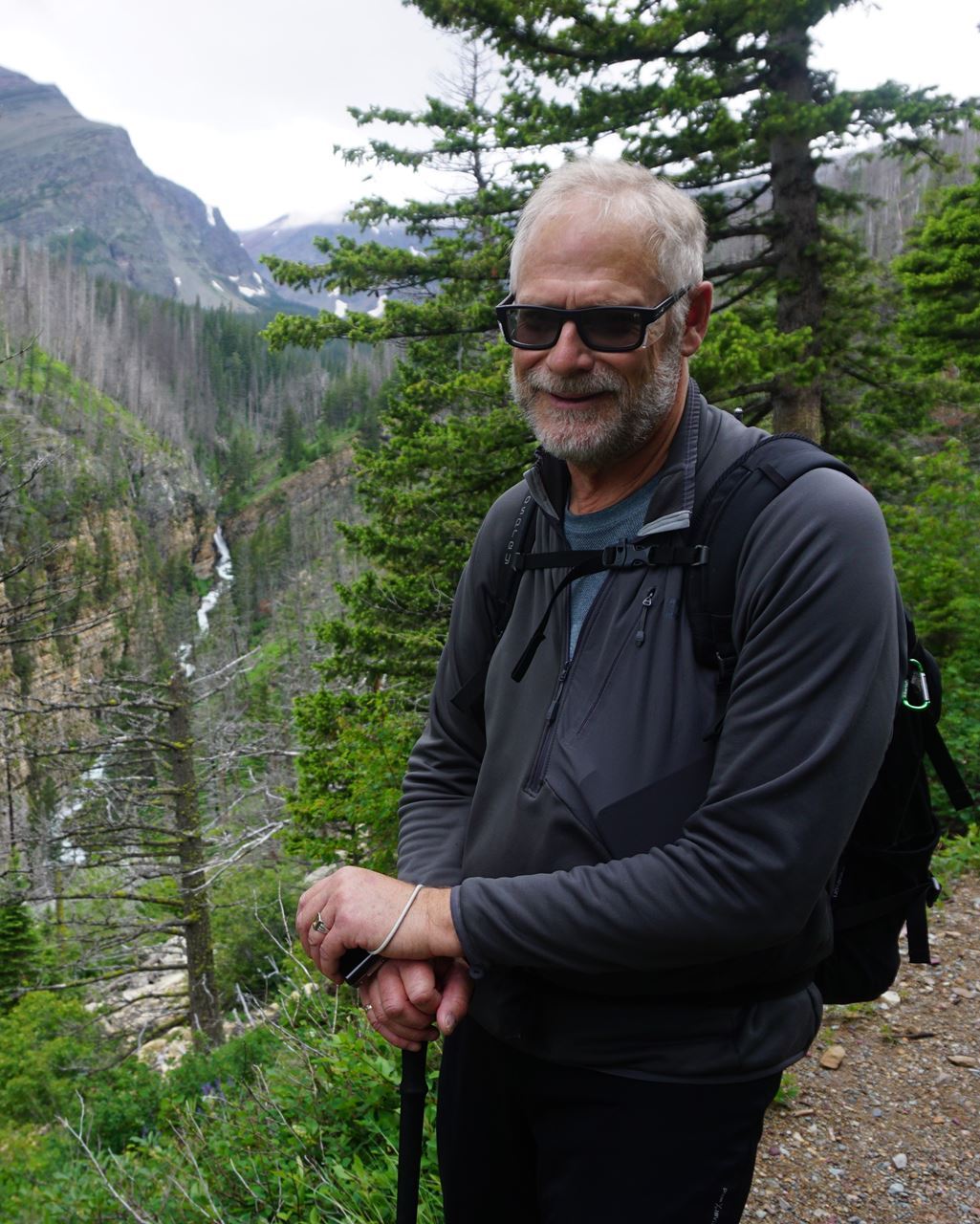Board of Directors
Interpretation Canada’s volunteer Board of Directors is elected to serve a two-year term. Members hold a breadth of experience working in botanic gardens, parks, museums, aquariums, science centres and historic sites.
The Board is responsible for the governing and day-to-day operations of our association. For more information about our governance, download a copy of our Bylaws.
Le Conseil d’administration
Les membres du Conseil d’administration bénévole d’Interprétation Canada sont élus pour un mandat de deux ans. Collectivement, ils ont acquis une vaste expérience au sein de jardins botaniques, de parcs, de musées, d’aquariums, de centres des sciences et de lieux historiques.
Le Conseil est responsable de la gouvernance et de la gestion au quotidien de notre association. Pour en savoir davantage sur notre gouvernance, téléchargez nos règlements administratifs (disponibles en anglais seulement pour le moment).
| Dr. Jacquie Gilson, Ph.D. (she/her) – ChairJacquie has worked in interpretation for more than 40 years. In 2015, she received her Doctor of Social Sciences from Royal Roads University, studying “inspiration” in interpretation. Jacquie retired from Parks Canada in 2020. She runs InterpActive Training and Coaching, and has written Inspired to Inspire: Holistic Inspirational Interpretation. Jacquie is honoured to live, work and play on the unceded territory of the K'ómoks nation in the Comox Valley, British Columbia. Jacquie Gilson, Ph.D. (elle) – PrésidenteJacquie travaille dans le domaine de l’interprétation depuis plus de 40 ans. En 2015, Royal Roads University lui a décerné un doctorat en Sciences sociales portant sur l’« inspiration » en interprétation. Retraitée de Parcs Canada depuis 2020, elle dirige l’entreprise InterpActive Training and Coaching et a publié l’ouvrage intitulé Inspired to Inspire: Holistic Inspirational Interpretation. Jacquie est honorée de vivre et de travailler sur le territoire non cédé de la Nation K'ómoks, dans la vallée de Comox, en Colombie-Britannique, dont elle fait aussi sont terrain de jeu. |
 | Roderick (Rod) MacLean (he/him) – Vice Chair & Conference ChairRod has over 30 years experience in historical interpretation. He is Executive Director of the Halifax Citadel Society, a charitable organization which works in partnership with Parks Canada to deliver the visitor experience program at the Halifax Citadel and Georges Island National Historic Sites in Halifax, Nova Scotia. Nova Scotia, also known as Mi’kma’ki, is the ancestral home of the Mi’kmaq First Nation who have been stewards of this land for countless generations. Rod joined Interpretation Canada’s board in 2020. Roderick (Rod) MacLean (il/lui) – Vice-présidentRod compte plus de 30 années d’expérience en interprétation historique. Il est directeur général de la Halifax Citadel Society, un organisme de bienfaisance qui, en partenariat avec Parcs Canada, assure l’offre du programme destiné aux visiteurs de deux lieux historiques nationaux situés à Halifax, en Nouvelle-Écosse : la citadelle de Halifax et l’île Georges. La Nouvelle-Écosse, aussi appelée Mi’kma’ki, est le territoire ancestral des membres de la Première Nation Mi’kmaq, qui en ont été les gardiens depuis d’innombrables générations. Rod siège au conseil d’Interprétation Canada depuis 2020. |
Lauryn Record (she/her) – SecretaryLauryn loves strategy, spreadsheets and signage. An experienced interpretive planner and writer, she crafts powerful narratives for a variety of projects in her role with groundcubed landscape architecture. Lauryn is proud to do this critical work on the traditional territory of the Blackfoot confederacy in Treaty 7, which is also home to the Tsuut’ina and Stoney First Nations and Métis Nation Region III. Lauryn joined Interpretation Canada’s board in 2023. Lauryn Record (elle) – SecrétaireLauryn Record aime la stratégie, les feuilles de calcul et la signalisation. Planificatrice et rédactrice expérimentée en interprétation, elle conçoit des récits puissants et des expériences immersives pour les visiteurs du Wilder Institute/Calgary Zoo. Lauryn est fière d'effectuer ce travail essentiel sur le territoire traditionnel de la confédération des Pieds-Noirs dans le Traité 7, qui abrite également les Premières nations Tsuut'ina et Stoney, ainsi que la région III de la Nation métisse. Lauryn siège au conseil d’Interprétation Canada depuis 2023. |
| Gabe Camozzi (he/him) – Treasurer & Sustainability Committee ChairGabe lives and works in Hamilton, Ontario, which is situated on the traditional territories of the Erie, Neutral, Huron-Wendat, Haudenosaunee and Mississaugas. As a team leader for Parks Canada at HMCS Haida National Historic Site in Hamilton and at Woodside National Historic Site in Kitchener, he is privileged to work with passionate people who share his love of building connections through stories. He has worked in natural and cultural heritage since 2015. Gabe joined Interpretation Canada’s board in 2024 Gabe Camozzi (il) – TrésorièreGabe vit et travaille à Hamilton, en Ontario, qui se trouve sur les territoires traditionnels des Ériés, des Neutres, des Hurons-Wendats, des Haudenosaunee et des Mississaugas. En tant que chef d'équipe pour Parcs Canada au lieu historique national du NCSM Haida à Hamilton et au lieu historique national Woodside à Kitchener, il a le privilège de travailler avec des gens passionnés qui partagent son amour pour l'établissement de liens par le biais d'histoires. Il travaille dans le domaine du patrimoine naturel et culturel depuis 2015. Gabe siège au conseil d’Interprétation Canada depuis 2024. |
| Keith Bocking (he/him) – Awards ChairKeith was raised in Saskatoon. He completed his post-secondary education at SIAAS and at the University of Saskatchewan. Keith began working with Parks Canada in 1978, before moving to Alberta Parks in 1980. In 2024, he retired after a 40 year career, most recently providing leadership for operational staff in east central Alberta. Keith lives in Sherwood Park, the Beaver Hills Biosphere, Treaty 6 territory-traditional First Nations and Metis lands east of Edmonton. Keith Bocking (il/lui) – Président des prixKeith a été élevé à Saskatoon. Il a fait ses études postsecondaires au SIAAS et à l'université de Saskatchewan. Keith a commencé à travailler pour Parcs Canada en 1978, avant de rejoindre Alberta Parks en 1980. En 2024, il a pris sa retraite après une carrière de 40 ans, au cours de laquelle il a notamment dirigé le personnel opérationnel dans le centre-est de l'Alberta. Keith vit à l'est d'Edmonton à Sherwood Park, dans la biosphère de Beaver Hills, sur le territoire du Traité 6, les terres traditionnelles des Premières Nations et des Métis. |
| Christopher Villacorta-Lopez (he/him) – Online PD Co-chair Christopher is a passionate interpreter who worked for Parks Canada, the Calgary Zoo, lead interpreter at the North Coast Ecology Centre Society, interpreter manager for the Vancouver Aquarium. But the grasslands called him back now he is working with CPAWS and the City of Calgary to build a conservation community. Christopher Villacorta-Lopez (il) Christopher est un interprète passionné qui a travaillé pour le zoo de Calgary, la North Coast Ecology Centre Society en tant qu’interprète en chef et en tant qu’interprète directeur à l’aquarium de Vancouver. Par contre, les prairies lui ont fait appel et il travaille maintenant avec CPAWS et la ville de Calgary pour établir une communauté de conservation. |
| Tamara van Dyk (she/her) Tamara is the Site & Visitor Experience Manager at Bellevue House where she builds teams, fosters engagement, and provides experiences that incorporate an inclusive approach to interpretation of this historic site, located on Haudenosaunee and Anishinaabe traditional lands, in Kingston Ontario. With over 35 years, she has worked across Canada in interpretation, outdoor education, and product development to inspire protection of Canadas diverse natural and cultural heritage. Living the dream and looking forward to this next adventure. Tamara van Dyk (elle) – Online PD Co-chair Tamara est la directrice de site et de l’expérience des visiteurs à Bellevue House où elle construit des équipes, encourage l’engagement et fournit des expériences qui incorporent une approche inclusive à l’interprétation de ce site historique, situé sur les terres traditionnelles des Haudenosaunees et Anishinaabes, à Kingston en Ontario. Sur plus de 35 ans, elle a travaillé à travers le Canada en interprétation, en éducation en plein air et en développement de produit pour inspirer la protection des divers patrimoines naturels et culturels du Canada. Vivant un rêve et ayant hâte à la prochaine aventure. |
| Kelsey Ross (she/her) – Communications Committee Chair Kelsey lives in Calgary, AB, the traditional territory of the Treaty 7 Nations and Métis peoples of Districts 5&6. With a degree in Archaeology, she started working in Museum Education. Then she moved to England and gained experience at places such as the Handel House and Hampton Court. After returning home, Kelsey continued her career in Museums & Heritage. Kelsey Ross (elle) Kelsey habite à Calgary en Alberta, le territoire traditionnel des nations du Traité 7 et des personnes Métis des districts 5 & 6. Avec un diplôme en archéologie, elle a commencé à travailler en éducation au musée. Par la suite elle a déménagé en Angleterre et a acquise de l’expérience en milieu tel que les Handel House et Hampton Court. Après être revenue chez elle, Kelsey a poursuivi sa carrière dans les musées et le patrimoine. |











